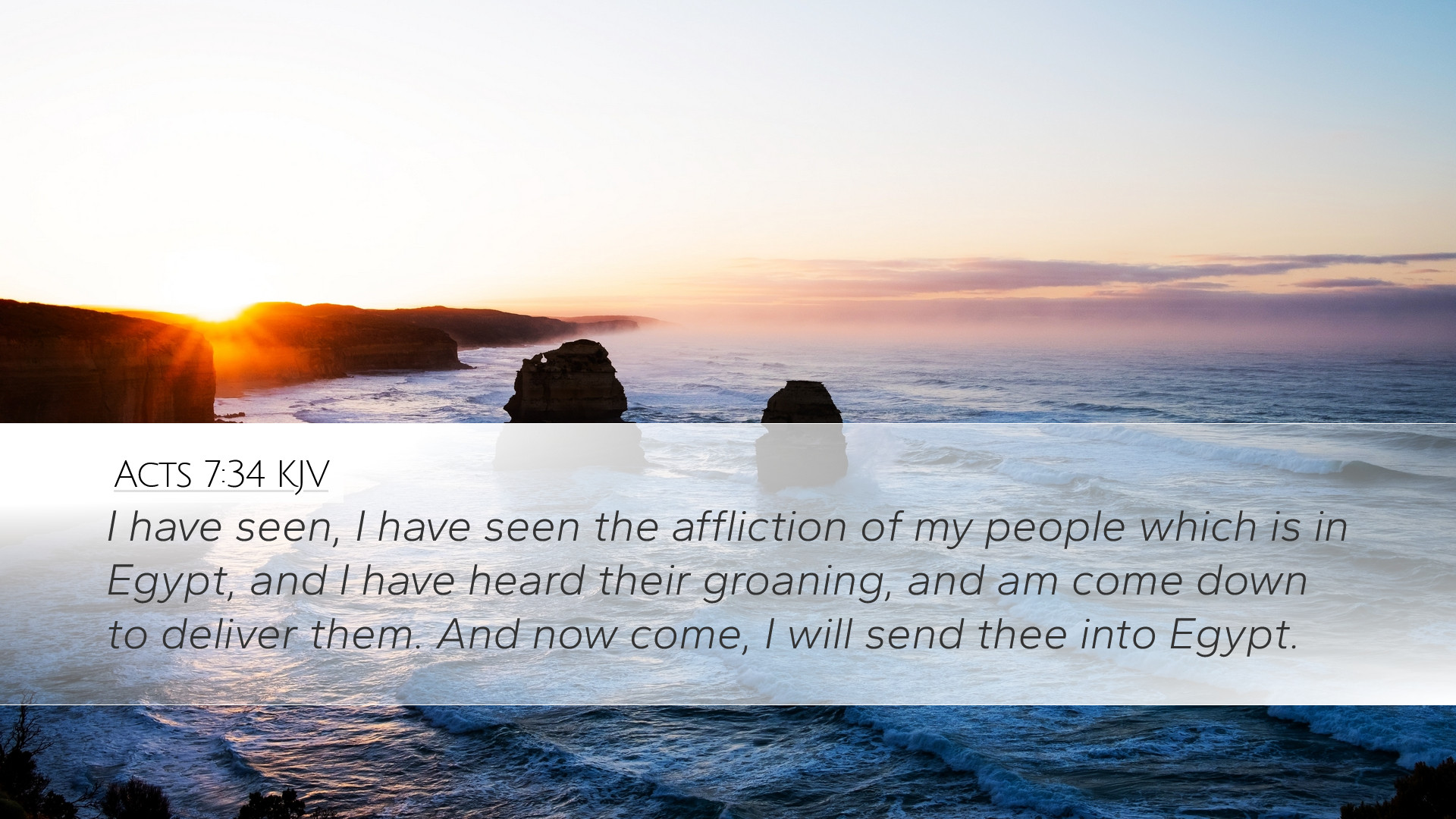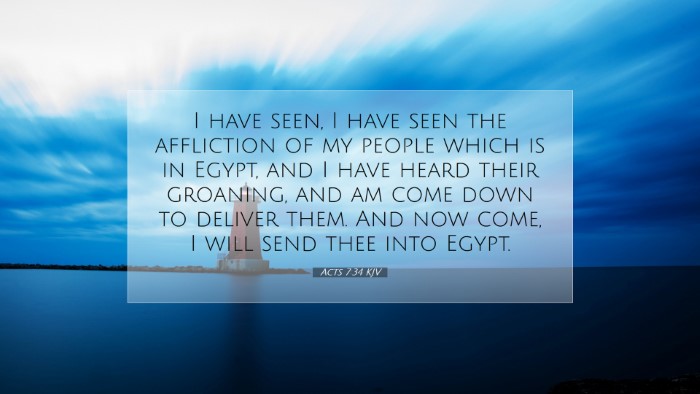Commentary on Acts 7:34
Bible Verse: "I have surely seen the affliction of my people which is in Egypt, and have heard their groaning, and am come down to deliver them. And now come, I will send thee into Egypt."
Introduction
The book of Acts serves as a pivotal narrative in early Christianity, detailing the transition from the life of Christ to the establishment of the Church. In Acts 7:34, Stephen recounts God's awareness and compassion for the suffering of His people in Egypt, emphasizing God's initiative to deliver them through Moses. This commentary synthesizes insights from various public domain sources, providing a profound reflection on God's character and plan, as well as the human response to divine call.
Context and Background
Stephen, a deacon and the first Christian martyr, is addressing the Sanhedrin. His speech outlines the history of Israel and highlights God's faithfulness amidst their afflictions. Specifically, Acts 7:34 refers back to the plight of the Israelites in Egypt, illustrating a moment of divine intervention. Stephen's recounting of this event is strategic, linking the experience of Moses with the mission of Christ and the Church.
Analysis of the Text
Divine Awareness of Suffering
In this verse, God's declaration, "I have surely seen the affliction of my people," signifies His omniscient awareness of human suffering. Matthew Henry reflects on this noting that God's eyes are ever upon His people, and He pays particular attention to their cries and struggles. This affirms a critical theological truth: God is not distant, but intimately involved in the affairs of human suffering.
The Groaning of the Afflicted
Stephen highlights the groaning of the Israelites as a vital element of their suffering. Albert Barnes emphasizes that their cries were not merely vocal expressions of distress but were indicative of deep anguish. The use of the word "groaning" illustrates a visceral response to oppression that aligns with other biblical depictions of lamentation. This aspect of human suffering resonates with various psalms that express despair, reminding readers that such cries reach the ears of the Almighty.
God’s Deliverance
The affirmation, "I am come down to deliver them," emphasizes God's active role in salvation history. Adam Clarke notes that this statement encapsulates the divine initiative in liberating Israel from bondage. The use of the phrase "I am come down" is profound, reflecting the incarnation-like motif where God Himself intervenes in human affairs. This act of divine salvation is not just limited to physical deliverance but also implies a spiritual continuity that foreshadows Christ’s redemptive work.
God's Sending of Moses
Lastly, the declaration, "And now come, I will send thee into Egypt," highlights Moses' calling as a pivotal moment in Israel's history. Matthew Henry describes this as a divine appointment where Moses transitions from a life of privilege in Pharaoh’s house to becoming a vessel for God's purpose. This sending is illustrative of God's pattern of calling individuals into service for His mission. The notion of being 'sent' carries implications for modern believers, echoing the Great Commission where followers of Christ are also sent into the world to proclaim the Gospel.
Theological Implications
- Divine Compassion: Acts 7:34 embodies the compassionate character of God, reminding believers that in times of distress, God is present and listening.
- Human Response to Deliverance: The call of Moses serves as a reminder of the need for obedience and faithful response to God’s call, emphasizing that human beings often play a crucial role in divine plans.
- Foreshadowing of Christ: This text not only speaks to the historical context of Israel but also foreshadows the ultimate deliverance found in Jesus Christ, who embodies the fulfillment of God’s promise to save.
Conclusion
Acts 7:34 poignantly captures a critical intersection of divine sovereignty and human suffering. As Stephen recounts God's commitment to His people, the verse serves as a powerful reminder of God's constant presence in our struggles and His promptings to deliverance. The insights drawn from the commentaries of Henry, Barnes, and Clarke collectively enrich our understanding of this profound scripture. As pastors, students, and theologians study this text, they are encouraged to reflect on the depth of God's compassion and the call to respond faithfully to His divine purposes.


